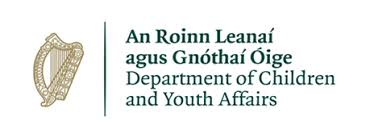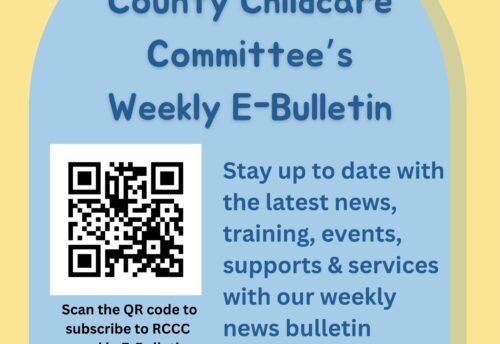
Over 800,000 children avail of first decade of free pre-school Annual budget jumps 172% since first roll out
Tuesday 7 May 2019
New figures show how the Government’s free pre-school programme has transformed early learning for children over the past decade, according to the Minister for Children and Youth Affairs, Dr Katherine Zappone.
The Minister says the programme is providing important development opportunities to all young children, in particular children from disadvantaged backgrounds, and raising the school-starting age.
The National Childcare Scheme, which will open later this year, will build on this strong foundation, according to Minister Zappone.
The free pre-school programme was officially launched a decade ago offering 38 weeks of pre-school education. Minister Zappone doubled this entitlement in 2018.
The figures show that since the pre-school programme started:
• 806,359 children have availed of the Programme
• Annual Government investment has soared from €104.9m a year to €285.5m
• The number of 4-year olds in Primary School has fallen significantly.
In addition since 2016, more than 5,000 children with disabilities a year are being supported to participate in the Programme.
Welcoming the figures Minister Katherine Zappone added:
“It is clear that this Programme has provided children with important learning and development opportunities and has been embraced wholeheartedly by their families. Since its introduction, the Programme boasts a 95 percent uptake rate with almost 40 percent of low-income families have said they would not have been able to enrol their child in pre-school had it not been for this Programme. Increasing the average number of funded weeks from 38 to 61 three years ago was a very significant development – bringing the numbers of children enrolled in the Programme to over 100,000 a year for the first time and there has been further extensions to the number of funded weeks since – now 76 weeks. These data are so encouraging. We know from research that all children benefit from high-quality early learning experiences – with the greatest gains experienced by children from disadvantaged groups. The introduction of the Programme has also opened up education, training and work opportunities for parents and has reduced the cost of early learning and care to families – benefitting entire households.
We now have a strong foundation for the roll out of the new National Childcare Scheme later this year – with many children expected to benefit from wraparound supports under the Scheme along with thousands more children, including those not yet enrolled in the ECCE Programme and those of school-going age. I am conscious of the hugely important role of pre-school education and the need for its continued development and look forward to outlining further steps next month when the initial implementation plan for First 5 – the whole of Government strategy for babies, young children and their families is published.”
ENDS//
NOTES TO EDITORS
The ECCE Programme was first announced in April 2009, first enrolling children from January 2010. The Programme seeks to provide children with their first formal experience of early learning prior to commencing primary school. The Programme is also aimed at promoting optimal development for all children and narrowing the gap in attainment between more and less advantaged children.
Funded Weeks
When first introduced, the ECCE Programme was delivered over 38 weeks in a given ECCE Programme Year and children were required to be between the ages of 3 years and 2 months and 4 years and 7 months in September in the year they enrolled. Children were entitled to just one year or 38 weeks of funded pre-school under the Programme.
In accordance with recommendations in the Report of the Inter-Departmental Group on Future Investment, this Programme was extended in September 2016. Under this expanded Programme children were eligible to enrol in the Programme at age three and remain in Programme until they transitioned primary school. Under this extension, three enrolment points were introduced – September, January and April and the average number of funded weeks under the Programme increased to 61 weeks (ranging from 38 weeks to 88 weeks depending on the child’s date of birth, age to first enrol in the Programme and parental choice with regard to school starting age).
In line with a commitment in the Programme for a Partnership Government, the ECCE Programme was expanded again. Since September 2018, children qualify for two years of funded pre-school under this Programme and can enrol when they are 2 years and 8 months of age in September in the year they enrol and continue until they transfer to primary school.
Key Facts
• Since first introduced, the number of weeks of funded pre-school has doubled.
Number of Children Benefiting
• The number of children benefitting from the ECCE Programme each Programme Year since its introduction is shown below:
Programme Year : Number of children
2010: 52,600
2010/11 : 63,643
2011/12 : 66,271
2012/13 : 67,237
2012/14 : 67,206
2014/15: 68,333
2015/16: 73,964
2016/17: 120,813
2017/18: 118,600
2018/19 (provisional) 107,692
Total 806,359
Key Facts
• The cumulative number of children enrolled since the introduction of the ECCE Programme exceeds 800,000.
Annual and Total Expenditure
Year Total ECCE Expenditure
2010: €104,984,322
2011: €158,986,978
2012: €165,819,323
2013: €164,779,264
2014: €164,418,275
2015: €168,529,525
2016: €207,508,000
2017: €267,602,615
2018: €285,586,057
2019: €97,738,512
Total: €1,785,952,871
Key Facts
• The ECCE Programme has received more than €1.7 billion in public funding since its introduction.
Capitation Rates
Payment for the ECCE Programme is made by way of a fixed capitation fee to services. When first introduced, the standard capitation was €64.50 and the higher capitation rate (for services with graduate room leaders) was €75. These rates were increased in 2018. The standard capitation rate is now €69, and the higher capitation rate is €80.25.
A 7% increase in initial capitation rates.
Raising the Quality of Provision and Qualifications of Staff
• It is well established that pre-school education produces beneficial and lasting effects on children, but only if it is high quality. One measure of quality is the qualification levels of staff.
• Prior to the introduction of the ECCE Programme in 2010, there was no minimum qualification for staff working in the sector. Qualification targets were first introduced under the ECCE Programme.
• Under the ECCE programme, all ECCE room leaders were required to hold a Level 5 qualification. In addition, services could qualify for a higher capitation rate where all the room leaders, in the ECCE room, held a Level 7 qualification, and all the assistants held a Level 5 qualification. This represented a major step forward in improving the quality of early learning and care.
• When the Early Years Quality Agenda was introduced in 2013, in order to further improve quality in early learning and care services, one of the items to be progressed was the introduction of a requirement that all staff working with children in these services should hold a qualification in early childhood care and education at a minimum of Level 5 on the National Qualifications Framework (NQF) or equivalent and that ECCE room leaders would be required to hold a minimum Level 6 qualification, or equivalent. These requirements were introduced in 2016.
• These initiatives have resulted in significant changes in the qualification profile of staff ECCE rooms and early learning and care services more broadly. For example, the proportion of services under contract to deliver the ECCE Programme who now meet higher capitation criteria have increased sharply.
Key Facts
• In 2010, just 11% of services under contract to deliver the ECCE Programme met the higher capitation criteria.
• In 2018, available data indicates c. 50% of services under contract to deliver the ECCE Programme meet the higher capitation criteria.
• In 2016, education focused inspections were introduced to evaluate the quality of education providing through the ECCE Programme.
• Raising the School Starting Age
• Since the introduction of the ECCE Programme in 2010, there have been very significant changes in the school starting age.
Raising the School Starting Age
Since the introduction of the ECCE Programme in 2010, there have been very significant changes in the school starting age.
Key Facts
• In the 2009/2010 academic year (before the ECCE Programme was introduced), 40% of junior infants were aged four on 1st January 2010. By comparison, in the academic year, 2017/2018, 23% of junior infants were aged four on 31st January of the academic year.
• In addition, the ages of junior infants as of 31st August in the year they start has also changed considerably. In the 2016/17 academic year (when the ECCE programme was first expanded) 38.3% of Junior Infants were age 5 starting school. By 2018/19 (when the ECCE Programme was further expanded) 43.4% were age 5 starting school. This represents a 6 percent change in proportions over a relatively short period of time and provides evidence that the policy objective of expanding the Programme is being met. (Please note data for 2018/19 is provisional).
Supporting Access to funded Pre-School for Children with a Disability
• In 2016, the multi award-winning Access and Inclusion Model (AIM) was introduced to ensure children with a disability could enrol in and meaningfully participation in the ECCE Programme.
Key Facts
• More than 5,000 children with disabilities are receiving targeted AIM supports every year to enable them to participate in mainstream pre-school: and many other children have are benefitting from universal AIM supports.
• Increasing Opportunities to Participate in Pre-School Among for Less Advantaged Groups
Increasing Opportunities to Participate in Pre-School for Less Advantaged Groups
Data from Growing Up in Ireland demonstrates the significance of the ECCE Programme particularly for less advantaged who would not have enrolled in and benefitted from pre-school education had it not been for the ECCE Programme.
Key Facts
• 39% of children from families in the lowest income quintile would not have enrolled in and benefitted from pre-school education had it not been for the ECCE Programme.
What’s Next for the ECCE Programme?
First 5, the Whole-of-Government Strategy for Babies, Young Children and their Families includes a range of ECCE Programme related actions:
• Provide continued funding and support for two full years of the ECCE programme. Undertake a review of the programme and, subject to findings, consider the need to make changes. Over the lifetime of the strategy, introduce a universal legal entitlement to pre-school
• Carry out a detailed assessment of the ECCE programme to identify groups of children with lower-than average enrolment and participation rates and take steps to raise enrolment and participation among these groups. The First 5 Implementation Plan (2019-2021) will identify milestones to reach over the next three years in relation to these and other First 5 actions. This will be published in May.



Leave a Reply